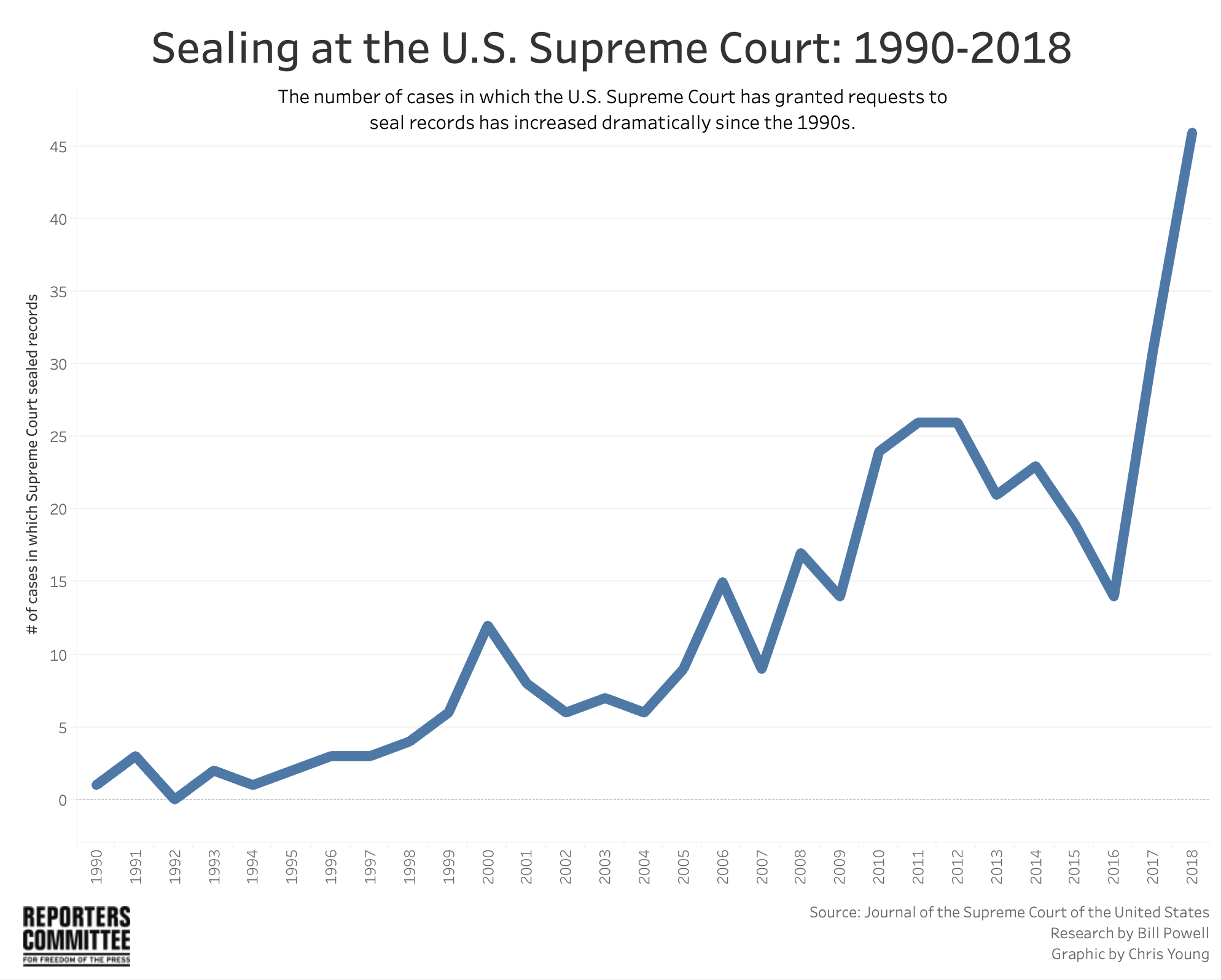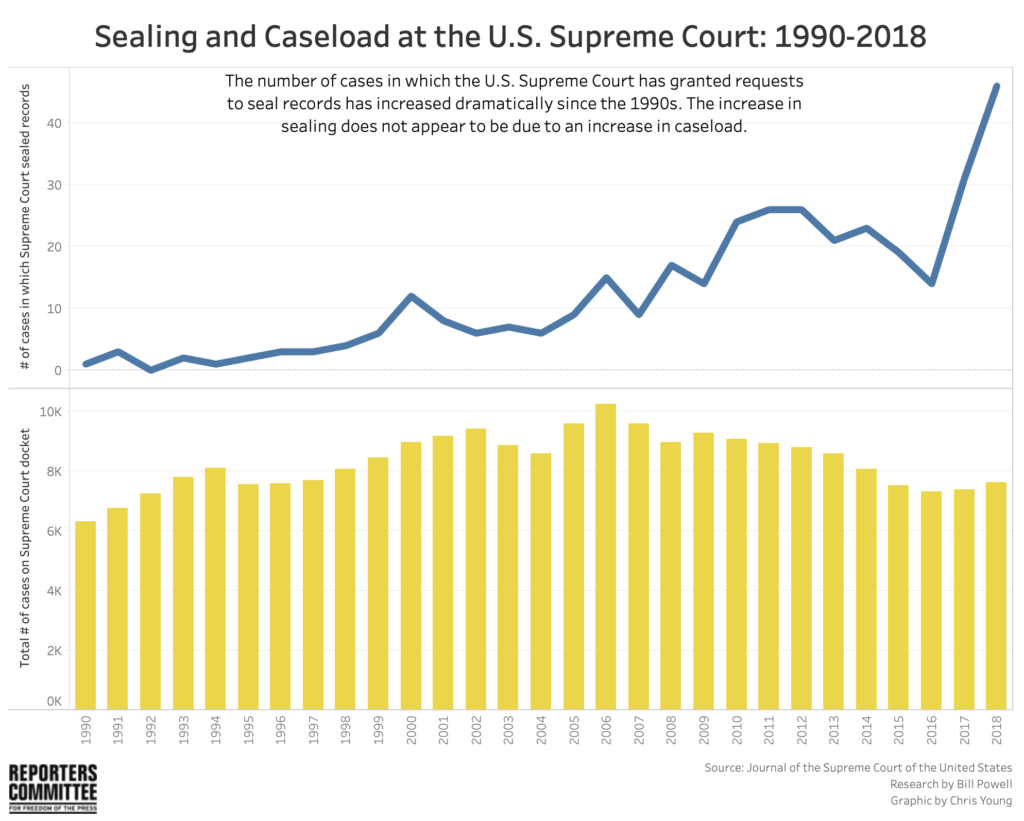Reporters Committee, NPR urge Supreme Court to adopt rule governing sealed records

Update (Sept. 3, 2020): In response to the media coalition’s letter, the U.S. Supreme Court said in a Sept. 3, 2020, letter to the Reporters Committee that it is evaluating its practices for sealing court records and plans to issue a new rule on the matter in the near future.
Concerned about a sharp increase in filings sealed by the U.S. Supreme Court, the Reporters Committee for Freedom of the Press, National Public Radio, and 51 media organizations are asking the nation’s highest court to adopt a rule that would state a clear standard for when court filings may be sealed, to help protect the public’s right to access court proceedings and records.
In a letter sent to the Supreme Court on Dec. 16, the media coalition revealed that the court granted requests to shield records from the public in 46 cases during its 2018 term — by far the highest annual total over a 30-year period in which the court has allowed an increasing number of secret filings.
“Although sealing may be warranted in certain cases, this recent marked increase in secrecy is concerning to members of the press who rely on access to the Court’s records to inform the public about the important work of the Court,” the letter stated. “It is also at odds with the Court’s long-standing commitment to openness and the First Amendment.”
The Reporters Committee previously asked the Clerk of the Supreme Court to adopt a standard addressing the sealing of court records in 2011. Citing a “significant growth” in sealings granted by the court since the 1990s, the Reporters Committee recommended that the court adopt a uniform policy that would reflect the court’s commitment to open access to court records.
The Clerk, however, denied the proposal, noting that sealing would likely decrease thanks to a then-recent policy adopted by the Judicial Conference, a policy-making body for the federal courts.
Unfortunately, that has not happened.
A comprehensive Reporters Committee review of Supreme Court journals dating back to 1990 found that the court has granted sealing in an increasing number of cases, especially in the past few years. The increase in sealing does not appear to be due to a rise in the Supreme Court’s caseload.

The Reporters Committee’s review concluded that in many cases, motions to seal records were granted by the Supreme Court even though parties provided no justification for secrecy other than that the filings were sealed in lower courts.
The media coalition particularly expressed concern about sealed records in death penalty cases. In 2018, the letter notes, NPR and the Reporters Committee successfully moved to unseal redacted briefs in Price v. Dunn, a death penalty case in which the Alabama Department of Corrections attempted to seal expert evidence regarding the state’s lethal injection protocol.
While such third-party intervention can be an effective tool for media organizations to unseal records in specific cases, the media coalition argues that a Supreme Court rule governing sealed filings “would be far more efficient and reduce the Court’s burden of addressing frequent motions to intervene and unseal.”
In the letter, the coalition included text of a proposed rule drawn from rules enacted by the circuit courts.
Read the media coalition’s letter.
The Reporters Committee regularly files friend-of-the-court briefs and its attorneys represent journalists and news organizations pro bono in court cases that involve First Amendment freedoms, the newsgathering rights of journalists and access to public information. Stay up-to-date on our work by signing up for our monthly newsletter and following us on Twitter or Instagram.